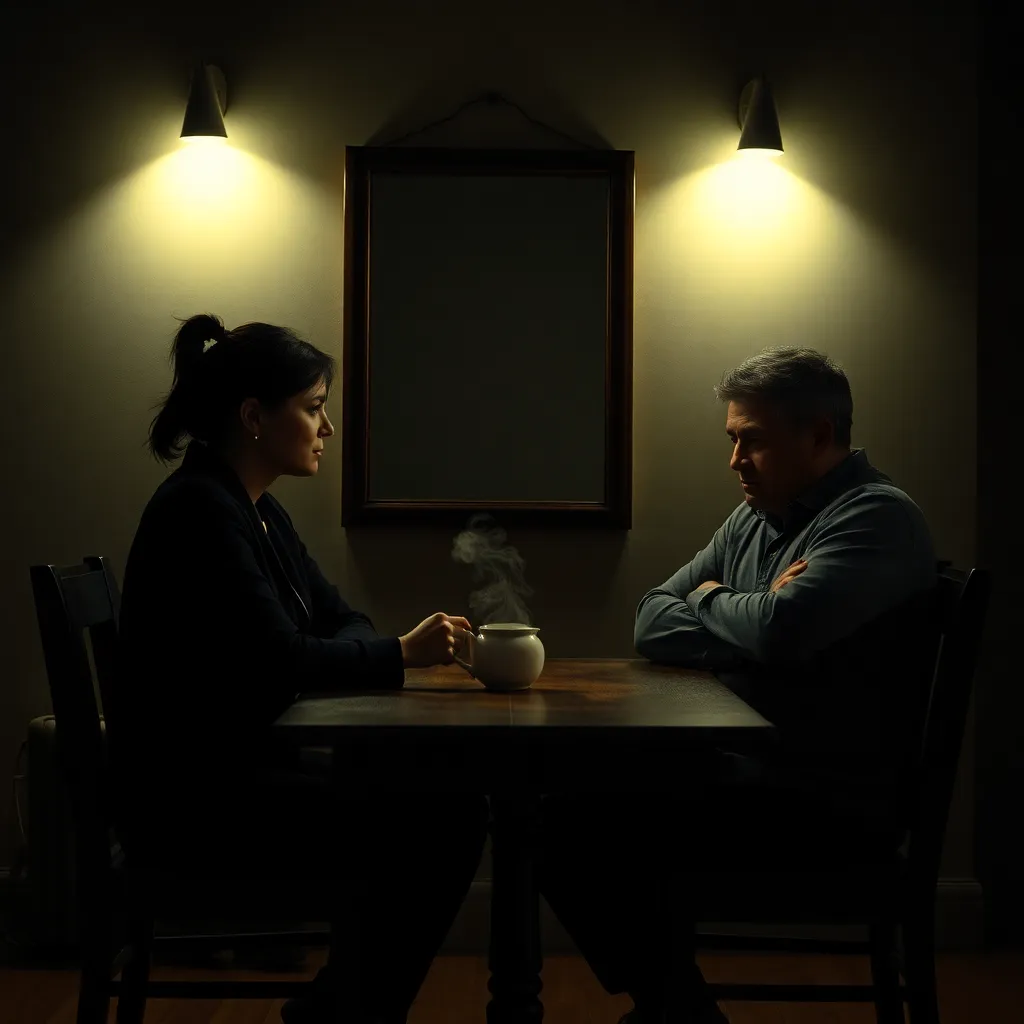Navigating relationships with individuals who exhibit narcissistic traits can be incredibly challenging and emotionally taxing. If you’ve ever found yourself questioning whether a narcissist in your life is capable of feeling guilt, remorse, or shame, you’re certainly not alone in your quest for clarity and understanding. This topic is not only critical for those directly involved with narcissists but also for anyone seeking to comprehend the complexities of human emotions and interactions. Understanding these emotional capacities in narcissists can significantly influence how you approach your relationship and protect your emotional well-being.
Delving into the emotional landscape of narcissists sheds light on whether they experience these emotions in the same way others do. Many people grapple with the heartache of feeling manipulated or neglected by someone who seems indifferent to their emotional needs. Through this article, you’ll gain insights into the psychological constructs of narcissism and how they influence the capacity for guilt, remorse, and shame. By the end, you’ll be equipped with practical knowledge to better navigate these intricate dynamics and possibly find more peace in your interactions.
In exploring these emotional aspects, it’s crucial to differentiate between appearance and genuine feeling. Narcissists often exhibit behaviors that seem devoid of empathy, leaving those around them confused and hurt. This article aims to unravel the mystery of these emotional responses and provide a clearer picture of what you might realistically expect. With this understanding, you can make informed decisions about how to engage with or distance yourself from such relationships, ultimately fostering a healthier emotional environment for yourself.
1. Defining Narcissistic Personality Traits

When we talk about narcissistic personality traits, it’s essential to understand that these traits are often deeply ingrained in the individual’s behavior. People with narcissistic tendencies frequently exhibit a strong sense of self-importance and a constant need for admiration, which can be challenging in personal relationships.
In relationships, this can manifest as one partner feeling unseen or undervalued due to the narcissist’s focus on their own needs. For instance, you might notice that conversations often revolve around their achievements or that they rarely express genuine interest in your thoughts and feelings.
Experts suggest that narcissists have an exaggerated sense of entitlement, which means they expect special treatment without reciprocating. This can lead to imbalanced relationships, where one person is always giving and the other is primarily taking, causing strain over time.
Interestingly, narcissistic traits can sometimes mask deeper insecurities and fears of inadequacy. Understanding this can help you approach these relationships with empathy, while also setting necessary boundaries to protect your own emotional well-being.
Recognizing these traits is crucial for maintaining a balance between empathy and self-preservation. By being aware of the dynamics at play, you can foster healthier interactions and make informed decisions about the future of the relationship.
2. Exploring Narcissists’ Emotional Range

When it comes to understanding a narcissist’s emotional range, it is essential to recognize their limited capacity for deep emotional experiences. Narcissists often exhibit a superficial emotionality that may appear convincing but lacks genuine depth. In relationships, this can manifest as an apparent lack of empathy, where they struggle to truly connect with their partner’s feelings.
In real-world scenarios, a partner might feel frustrated when a narcissist fails to acknowledge their pain or apologize sincerely after a disagreement. This often stems from their inability to process emotions like guilt, remorse, or shame in a meaningful way. Instead, they may deflect responsibility or blame others, leaving their partner feeling unheard and invalidated.
Experts suggest that narcissists may experience moments of guilt or shame, but these feelings are typically short-lived and quickly rationalized away. The focus often shifts to maintaining their self-image, rather than addressing underlying emotional issues. To foster a healthier relationship, recognizing these patterns and setting clear boundaries can be crucial.
Understanding a narcissist’s emotional range can help partners manage their expectations realistically and make informed decisions about the relationship. By learning to navigate these emotional limitations, one can protect their own emotional health and find ways to communicate more effectively. This awareness can ultimately lead to a more balanced and less tumultuous relationship dynamic.
3. Do Narcissists Experience Guilt?

Understanding whether narcissists can experience guilt requires a deep dive into their emotional framework. Unlike the typical emotional response, narcissists often view situations through a lens that prioritizes their self-image and personal gain.
In relationships, this can manifest as an apparent lack of remorse for actions that harm others. For example, a narcissistic partner might deflect blame when confronted about hurtful behavior, focusing instead on how the situation affects them personally.
Experts in psychology suggest that any guilt a narcissist feels is often superficial and tied to self-interest. Rather than genuine remorse, their regret may stem from the negative consequences they face, such as damaged reputations or lost opportunities.
For those in relationships with narcissists, recognizing this dynamic can be crucial. Understanding that their expression of guilt may not align with genuine empathy allows partners to set realistic expectations and boundaries.
Ultimately, while narcissists might occasionally display guilt, it is essential to discern its underlying motivations. By doing so, you can navigate the relationship with clarity and protect your emotional health.
4. Understanding Remorse in Narcissism

While understanding whether narcissists experience guilt is complex, delving into their capacity for remorse requires a nuanced approach. Narcissists might exhibit signs of remorse, but often, this is more about the impact on their self-image rather than genuine regret for their actions.
For example, a narcissist might apologize for harsh words if they fear losing their partner, but the motivation is often self-serving. This kind of remorse is typically linked to damage control rather than a true understanding of the pain they caused.
In relationships, it’s crucial to recognize these patterns to avoid being misled by insincere apologies. Understanding that their remorse may lack depth can help you set healthier boundaries and manage your expectations.
Experts suggest observing consistent behavior change as a more reliable indicator of genuine remorse. A narcissist who works on improving their behavior over time may be showing a deeper awareness, although this is not always common.
Ultimately, understanding the subtleties of remorse in narcissism can empower you to make informed decisions about your relationship. Recognizing these dynamics helps in maintaining your emotional well-being while navigating complex interactions.
5. Shame: A Rare Emotion for Narcissists

Shame is often a complex and nuanced emotion that not everyone experiences in the same way. In the case of narcissists, their relationship with shame is particularly complicated, as they typically exhibit a facade of invulnerability. Many experts suggest that this is because narcissists are often deeply insecure beneath their grandiose exterior. This insecurity can block them from fully acknowledging shame, which they view as a threat to their self-image.
For many individuals, feeling shame can lead to growth and change. However, narcissists tend to avoid feeling shame as it clashes with their self-worth, leading them to deflect or project these feelings onto others. Imagine being in a relationship where your partner never admits to feeling inadequate or wrong. This lack of vulnerability can make it exceedingly difficult for their partners to build a genuine emotional connection.
In real-world scenarios, you might notice a narcissist shifting the blame during conflicts or refusing to take responsibility for their actions. Such behavior is a protective mechanism to guard against the painful experience of shame, which they are unwilling or unable to process. If you’re in a relationship with someone exhibiting these tendencies, it’s essential to recognize these patterns and set boundaries to protect your emotional well-being.
Understanding the rarity of shame in narcissists allows partners to develop more realistic expectations. While it can be disheartening to witness a lack of emotional depth, recognizing this trait can help you make informed decisions about your relationship. When you understand these dynamics, you can better navigate your interactions and decide what is best for both you and your partner.
Conclusion: Creating Beautiful Outdoor Spaces
In navigating relationships with narcissists, understanding their emotional landscape is crucial. First, we explored how narcissists often struggle with guilt, remorse, and shame due to their heightened self-focus. Second, we examined the impact of these emotional deficiencies on their relationships, often leading to manipulation and lack of empathy. Third, we discussed the importance of setting boundaries to protect your emotional well-being. Fourth, we highlighted the necessity of self-care when involved with a narcissist, emphasizing that your needs deserve priority. Lastly, we underscored the value of seeking professional guidance to navigate and heal from such relationships.
As a practical next step, consider evaluating your current relationships to identify if any patterns align with those discussed, and take proactive steps to address them. Remember, empowerment in relationships begins with knowledge and action.
Save or bookmark this article to revisit these insights as you continue your journey towards healthier, more fulfilling relationships. Looking ahead, by understanding these dynamics and applying what you’ve learned, you pave the way for relationship success built on mutual respect and emotional health. Embrace this opportunity to transform your relationships and create a brighter, more connected future.
